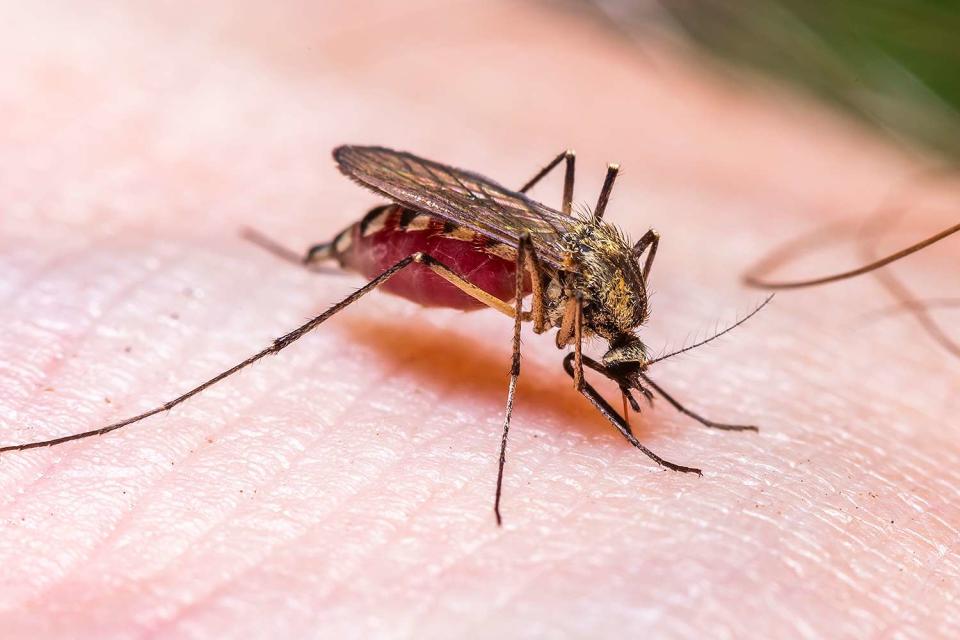West Nile Virus Confirmed in Several States, Experts Encourage Residents to Protect Themselves from Mosquito Bites
People who live in hotspots should take precautionary measures to avoid the mosquito-borne illness, which often goes undetected

Getty
The culex mosquito spreads the West Nile virus to humans after biting infected birds.The West Nile virus has been confirmed in several states in the U.S., and now experts are warning that the wet winter and hotter-than-usual summer has led to an increase in population of culex mosquitoes, which carry the virus.
“The number of mosquitoes that have hatched off after the spring snowmelt is pretty tremendous in many of the states, whether it be Colorado or Utah or California,” Daniel Markowski, technical adviser for the American Mosquito Control Association, told CNN, adding that they’ve seen “pretty big” warning signs for the virus’s spread.
There have been 90 people diagnosed with the disease in the U.S. so far this year, with about half of those cases in Arizona, according to the CDC.
A second person was confirmed to have been diagnosed with the disease Wednesday in El Paso, where the patient ended up hospitalized.
Mosquitos in seven Colorado counties were confirmed to be carrying the virus, and in Boulder County, “nearly 97% of Boulder County residents are at risk for contracting West Nile virus,” the official county website says.
And in Kentucky, the virus was found in multiple zip codes, with officials announcing that they’ll begin “fogging” to control the mosquito population.

Never miss a story — sign up for PEOPLE's free daily newsletter to stay up-to-date on the best of what PEOPLE has to offer, from juicy celebrity news to compelling human interest stories.
The virus spreads after a culex mosquito — a small, brown mosquito — bites an infected bird, and then bites a human. Experts are saying they’re finding the virus is showing up in mosquito samples more frequently than in previous years, according to CNN.
“Once you start seeing increases of West Nile virus in those mosquitoes, that does raise the alarm that people need to be taking measures to prevent being bitten by mosquitoes,” Dr. Erin Staples, the medical epidemiologist in charge of the CDC’s arboviral diseases branch, told CNN.
Related: First U.S. Malaria Cases in 20 Years Confirmed in Florida and Texas
Although 8 out of 10 people infected with West Nile will not develop any symptoms, according to the CDC, the virus can cause a fever, headaches, body aches, and joint pain.
Fatigue and weakness after recovering from West Nile can last for weeks — or even months, the CDC says.
Severe illness is rare, but can happen, and can lead to coma or paralysis, and in some cases, death.
Since the virus can go undetected, residents in areas where the virus has been confirmed are urged to take measures to protect themselves from mosquito bites.
The CDC advises using an insect repellant with DEET, Picaridin oil, lemon eucalyptus, or para-menthane-diol — with the last two ingredients not recommended for children under 3 years of age.
Long-sleeved shirts and pants should also be worn when outside, especially now that it’s August — the month that usually sees the most cases.
As Markowski told CNN, “You’re at the right temperature, the right mosquito population and the right time of year for localized outbreaks to occur.”
For more People news, make sure to sign up for our newsletter!
Read the original article on People.

